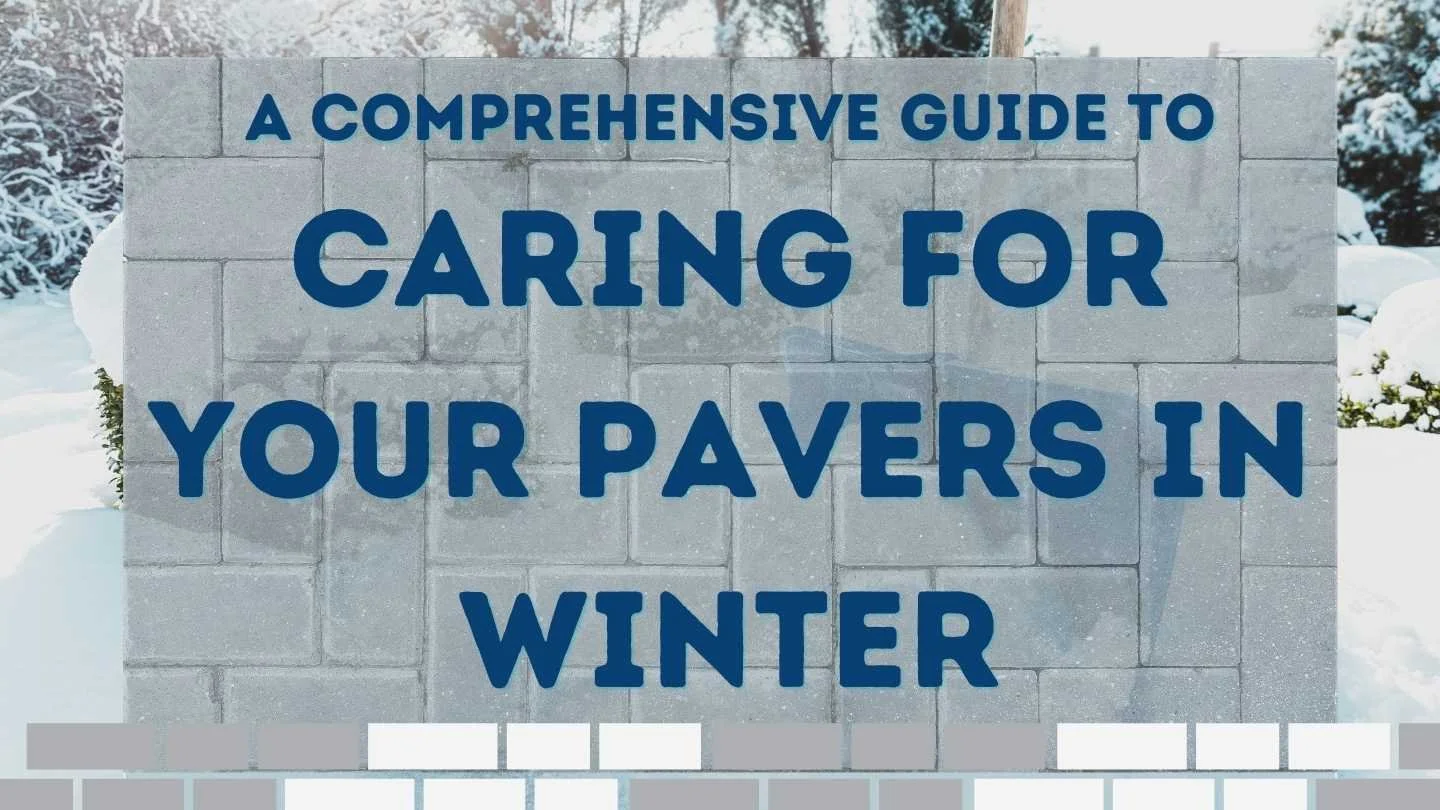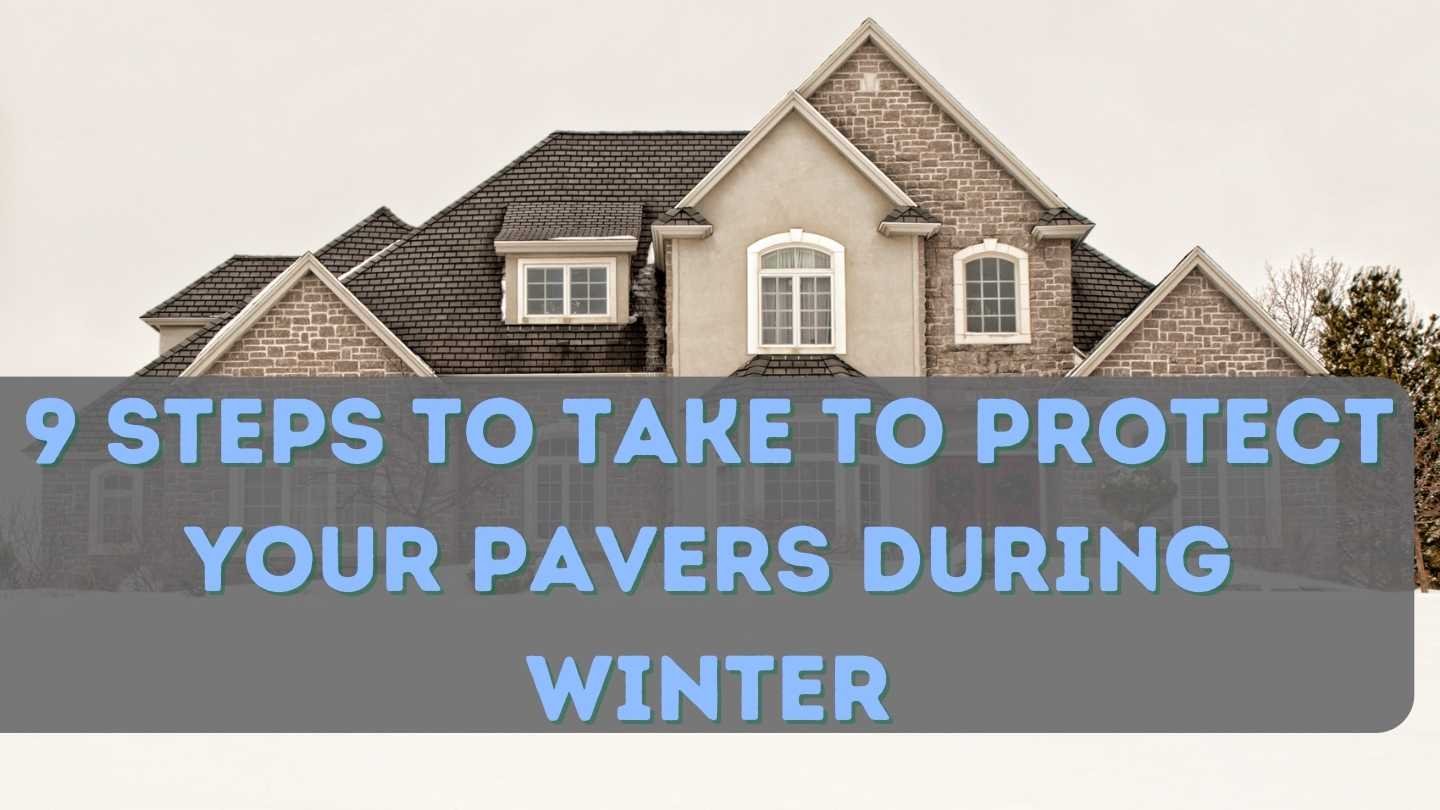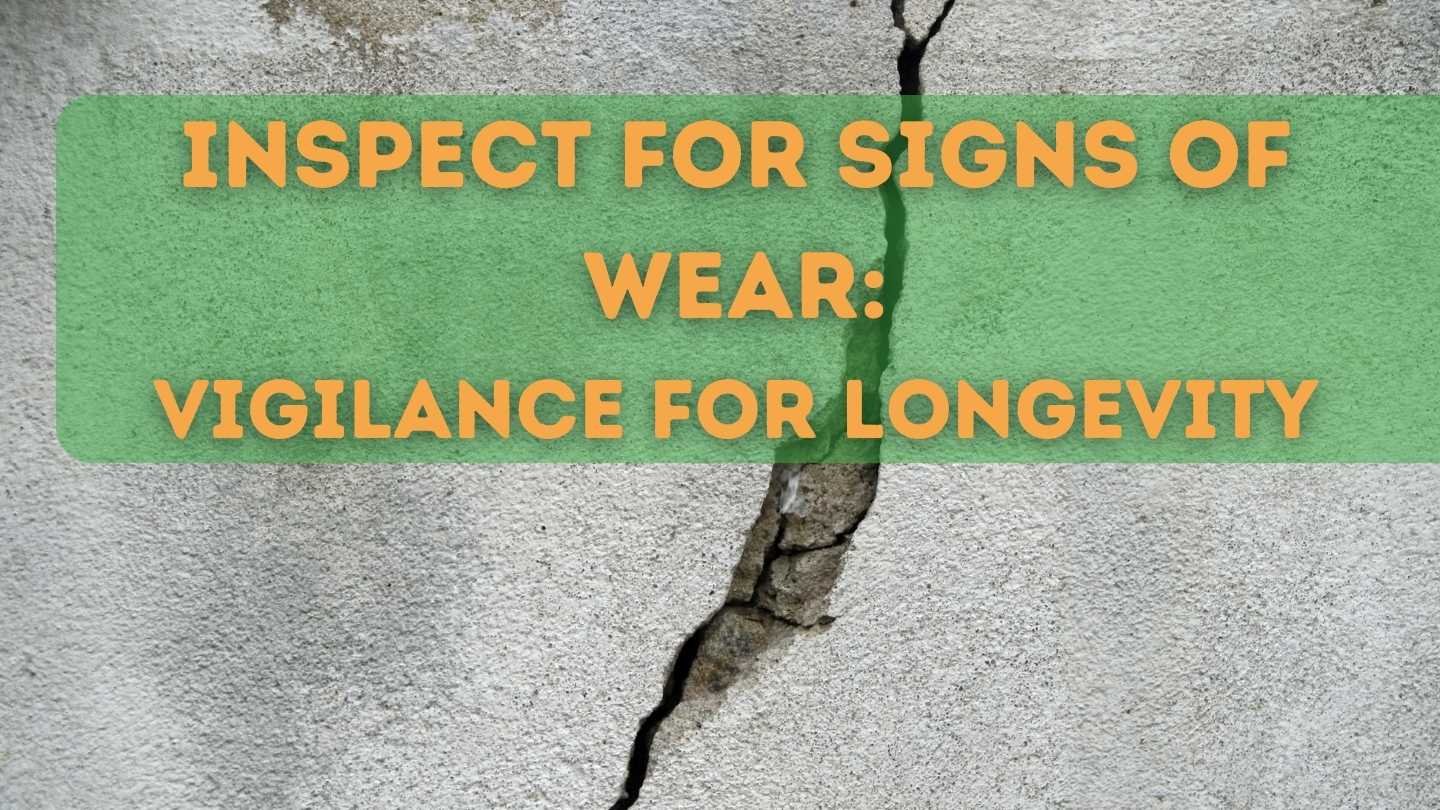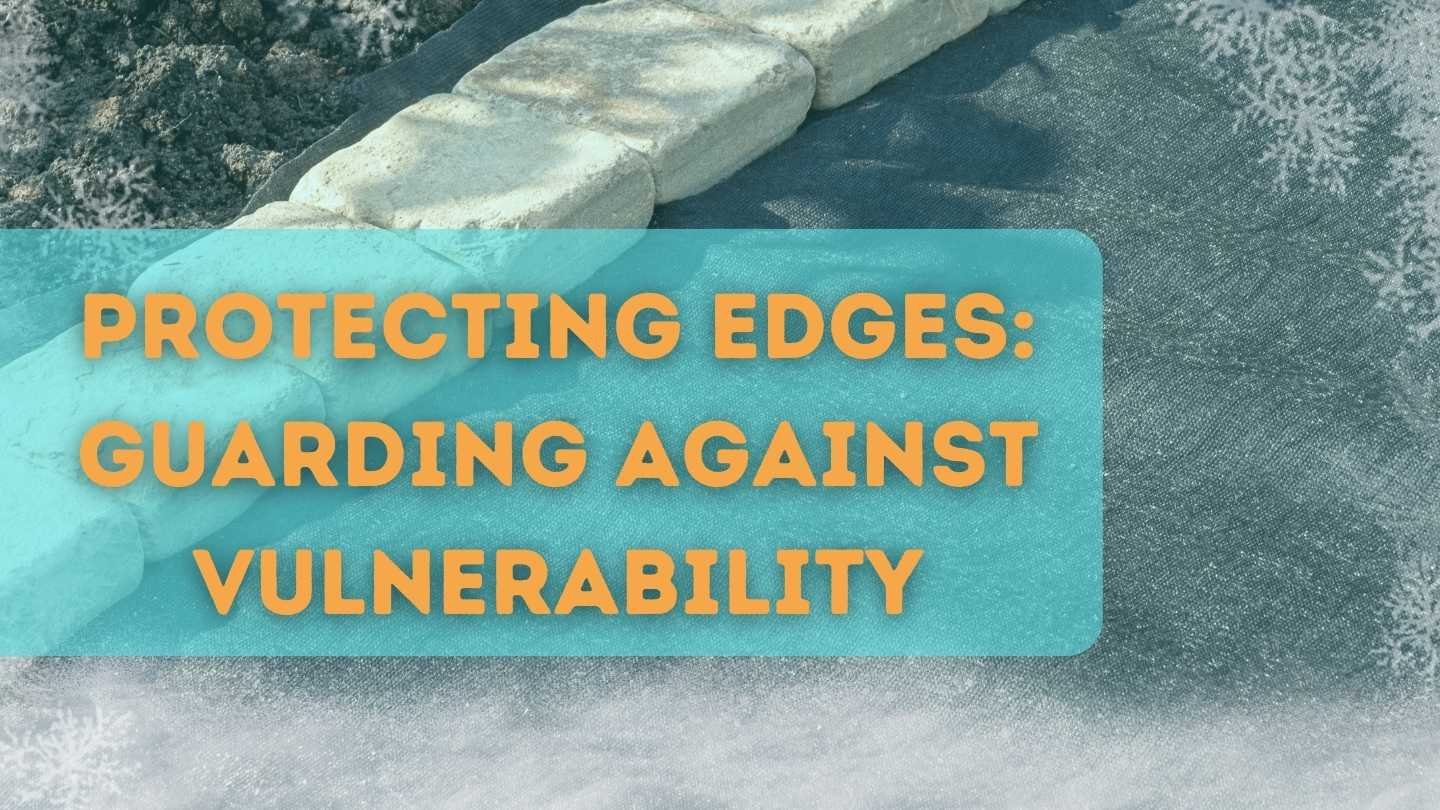A Comprehensive Guide to Caring for Your Pavers in Winter
Winter in Rock Hill, SC comes with some hardscaping challenges, but our guide provides tips and tricks to protect your pavers over the colder months
The concept of pavers has been used in various cultures across the world for thousands of years. Because pavers have been and can be found in landscaping across so many climates around the planet, it only makes sense that pavers can survive in cold weather; however, preserving pavers is both an art form and a science.
Here in the Carolinas, we experience a range of temperatures and weather patterns throughout the year. Our summers can get brutally hot, and while our winters are considered mild compared to other areas of the country, we still see our fair share of below-freezing days and nights.
How Do I Care for My Pavers?
These shifts in temperature often lead homeowners in the Rock Hill, SC, area to ask themselves, “How do I care for my pavers over the winter?” The truth is that pavers can experience damage due to extreme shifts in temperature, and if not properly cared for and maintained, they can develop cracks, breaks, and shifting that can lead to instability.
Thankfully, you can rely on the experts at Ground FX Landscaping & Water Features to provide hardscaping guidance when it comes to pavers. Our company started in Pennsylvania, so we know a thing or two about cold winter temperatures and caring for hardscaping and landscaping in freezing conditions.
Taking action before winter to protect your pavers is important, but there are still things you can do during the colder months to preserve the integrity of your hardscaping
9 Steps to Take to Protect Your Pavers During Winter
To make life easier for homeowners in the Rock Hill area, we’ve put together this comprehensive guide to caring for your pavers in winter. We’ll take a look at some DIY methods you can use to keep your pavers in great shape when the weather gets cold, and we’ll also cover some important things to watch out for that may indicate it’s time to contact a professional.
By the end, you’ll have a better idea about caring for your hardscaping during the winter, and we hope you’ll gain peace of mind as well. If you’re ready to stop worrying about cold-weather damage to your pavers, let’s get started!
Pre-Winter Cleaning Ritual: A Fresh Start for Your Pavers
Just like with anything else in life, preparation is the key to keeping your pavers clean and healthy during the winter. Although we’re well into the winter months already here in the Rock Hill region, it’s good to know that taking steps ahead of time can save time later.
Before winter arrives, remove debris and leaves left over from the fall from your pavers and hardscaping. This not only keeps these areas clear to prevent slips and falls, but it also keeps moisture from accumulating underneath matted leaves during winter precipitation. Although today’s pavers do a fantastic job of channeling moisture in most cases, you still don’t want water building up around hardscaped areas.
Adding and maintaining a proper sealant can play a huge role in protecting your pavers during the winter and throughout the year
Sealing the Deal: A Protective Barrier Against the Elements
We recommend sealing your pavers but not all types of pavers require sealing. On top of that, different areas of the country may need to follow a different sealing schedule. We base our recommendations on the specific needs of each customer we work with, but in general, we recommend always sealing new pavers that require it. From there, sealing every few years can make sense, but in areas that are more prone to moisture, yearly sealing is ideal.
Just like with cleaning, sealing needs to be pre-planned. Trying to seal pavers during the winter may not be as effective, so it’s a good idea to get this done before winter arrives. After the weather cools down, any sealant added may be less effective.
Weed and Moss Control: Keeping Nature in Check
Although great care is taken to install pavers in such a way as to prevent weed and moss penetration and growth, care should still be taken before winter arrives to keep these issues in check. A pre-emergent weed control can be used around pavers to prevent weed growth during the winter (remember that weeds don’t take the season off, even if they are sometimes dormant,) and you need to check your pavers often throughout the winter.
A regular inspection allows you or your landscaping company to provide care to control weeds, moss, and other intrusions before they get out of control. Trust us, you want to nip this in the bud before spring because it becomes much more difficult to control established weed growth during the warmer weather.
Joint sand is the “glue” that holds pavers in place, so check it throughout the winter to ensure you have even stability
Joint Sand Rehabilitation: Stabilizing the Foundation
The joint sand between your pavers plays a crucial role in maintaining stability, but harsh cold weather conditions can lead to erosion. This can cause the pavers to shift, possibly leading to injuries and damage. We recommend you have your pavers regularly inspected, and replenish joint sand where needed. Joint sand is the “glue” that helps to keep pavers in place, and when enough of it has eroded, pavers become loose. Ground FX Landscaping & Water Features provides solutions to ensure your pavers are in perfect shape all year, and we regularly redeploy joint sand to ensure a solid foundation all year long.
Snow and Ice Removal: A Delicate Touch for Paver Preservation
Removing snow and ice from your pavers requires a delicate touch to prevent damage. While we don’t see that much snow down here in the Rock Hill area, we do experience plenty of icy conditions, particularly during January and February. Not only is ice a concern for slips, falls, and injuries on paver patios, walkways, driveways, and stairs, but it can also be a concern when it comes to cracking and moisture damage within your pavers.
If you remove ice from your pavers, we recommend you opt for plastic shovels or even a snow blower (those are rare in the Carolinas, but a leaf blower may do the trick,) instead of metal tools that can scratch or chip the surface. We discourage the use of chemicals to remove ice as these can potentially be caustic to your pavers and may end up hurting nearby vegetation. Our team will be happy to inspect your home’s hardscaping and provide personalized solutions to keep your investment protected.
You can also choose environmentally friendly options such as calcium magnesium acetate or sand to provide traction without compromising the integrity of your pavers. These solutions provide a protective coating over the surface of your pavers and may help you reduce slip-and-fall risks.
Small cracks will almost always become large cracks and damage over time. Have your pavers inspected by an expert often to spot and treat trouble before it turns into a disaster.
Inspect for Signs of Wear: Vigilance for Longevity
As mentioned, regular inspections play a key part in identifying signs of wear and damage early on, but they are vital throughout the winter months. It’s important to look for cracks, chips, or uneven surfaces, but it sometimes requires a trained eye and specialized tools to identify these issues. In some cases, a paver surface may look fine at first glance, but until it is evaluated using levels and more sophisticated tools, you may not know that you have a growing problem on your hands.
Part of the concern here is that tiny micro-cracks can eventually turn into bigger cracks. Even if you don’t experience cracks and breaks this winter, pavers with micro-damage can easily develop wider damage as the weather heats up and pavers expand during the spring. This is why we encourage you to contact our hardscaping company in Rock Hill, SC if it’s been a while since you’ve had an in-depth inspection completed.
Proper Drainage: A Pathway for Water Runoff
Proper drainage is essential to prevent water pooling, especially during freeze-thaw cycles. Check that your pavers have adequate drainage, and allow a professional to treat uneven areas with leveling sand to adjust the slope as needed. This proactive step helps preserve the integrity of your pavers over the winter months, but it can be a benefit all year long. Low-lying areas that are prone to moisture accumulation can be a serious issue, even for high-quality pavers.
As mentioned in our post about “Hardscaping Trends to Watch in 2024,” we’re seeing more and more homeowners opt for permeable pavers. These are paver solutions engineered to allow moisture to flow through and drain away naturally. These can be solutions for some homeowners in the Rock Hill region, and our landscape design specialists will be happy to provide a free evaluation and guidance.
Pay special attention to edges and paver borders during winter to spot vulnerabilities and wear sooner
Protecting Edges: Guarding Against Vulnerability
We also encourage you to pay special attention to the edges of your pavers, as these areas are more susceptible to damage. Installing edge restraints or adding extra sand can help maintain stability along the perimeter, guarding against potential wear and tear.
This is also where you want to pay special attention to decorative stone accents and borders. These areas sometimes begin to show cold-weather damage before it spreads to the middle, so it pays to keep a close eye on these areas.
Plan Ahead for Warmer Weather
Lastly, just like how we mentioned, planning for winter before the cold weather arrives is crucial; planning ahead for spring before the weather warms up is equally as important. Now is the time to have a professional inspection completed by the experts at Ground FX Landscaping & Water Features before the weather heats up.
We can ensure your pavers and other hardscaping are in great shape to provide lots of outdoor fun in the coming season, and if we find any areas of concern, our team can provide recommendations and expert care to ensure your pavers last for many years to come.
Call Ground FX Landscaping & Water Features today by dialing (803) 371-2324 to schedule service, or use our convenient contact form to reach our hardscaping specialists online right now!






